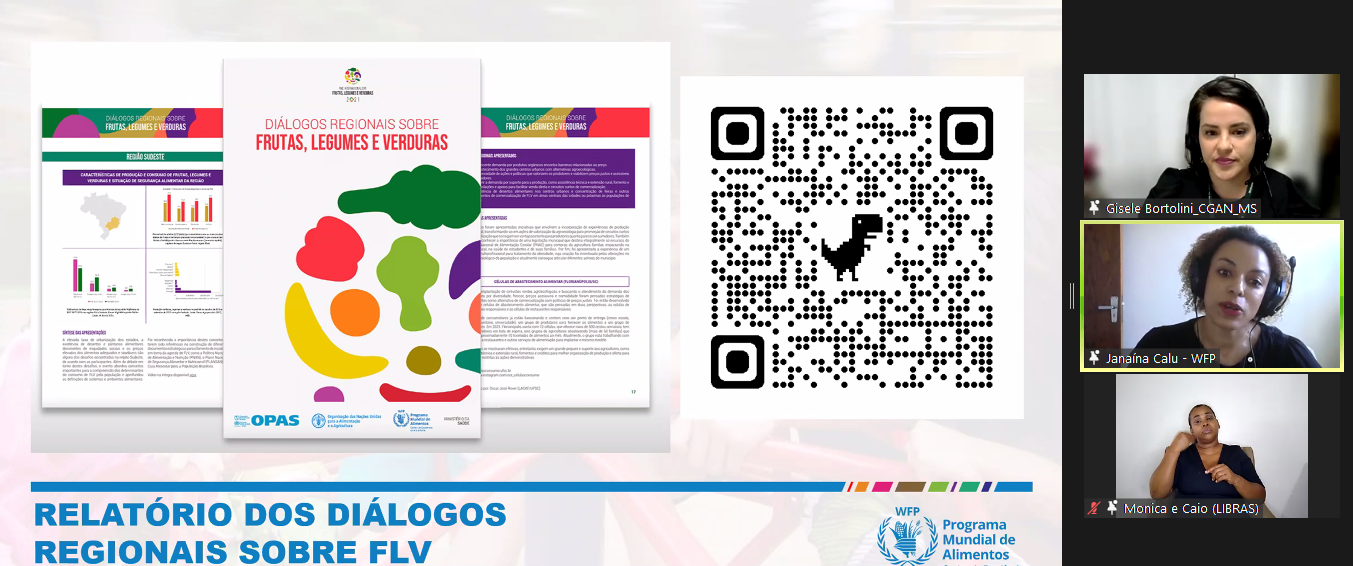
The WFP Centre of Excellence against Hunger Brazil launched a report called Regional Dialogues on Fruits and Vegetables during the National Dialogue on fruits and vegetables, which took place on December 6th and 8th. The event aimed to promote adequate and healthy eating, through a broad debate on the strengthening of production, availability, access and consumption of those foods.
The report, prepared with the support of the partners of the Nurture the Future project, presents a synthesis of the debates held during the five Regional Dialogues. In those Dialogues, the particularities of each region of Brazil were discussed in relation to the challenges and opportunities for the implementation of policies and actions that promote health and healthy eating, and the strengthening of fair and sustainable food systems.
“We hope that the challenges and possibilities for success presented in this document will contribute to the implementation of actions, programmes and public policies that promote the health and food and nutrition security of the population”, said Janaína Calu, consultant for the Nurture the Future project. The project team is also preparing the translation of the report into Spanish and a new publication on what Brazil, Colombia and Peru are doing on the topic.
The national event also marked the launch of an e-book with selected experiences from the “Innovation Laboratory: Encouraging the Production, Availability, Access and Consumption of Fruits and Vegetables”, developed by PAHO/WHO. The Laboratory aimed to identify, select and disseminate innovative experiences, developed in Brazil, that value and strengthen healthy and sustainable food systems. Thus, the e-book presents the results and recommendations to promote healthy eating, with an attentive look at all stages of the food system.
Brazil’s activities for the International Year of Fruits and Vegetables were built in an intersectorial manner and organized by the Ministry of Health, through the General Coordination of Food and Nutrition and the National Cancer Institute, by the Pan American Health Organization (PAHO/WHO), by the UN Food and Agriculture Organization (FAO) and by the Centre of Excellence Against Hunger (WFP); and has the partnership and support of the Ministry of Agriculture, Livestock and Supply; Ministry of Science, Technology and Innovation; Ministry of Citizenship and National Education Development Fund.




